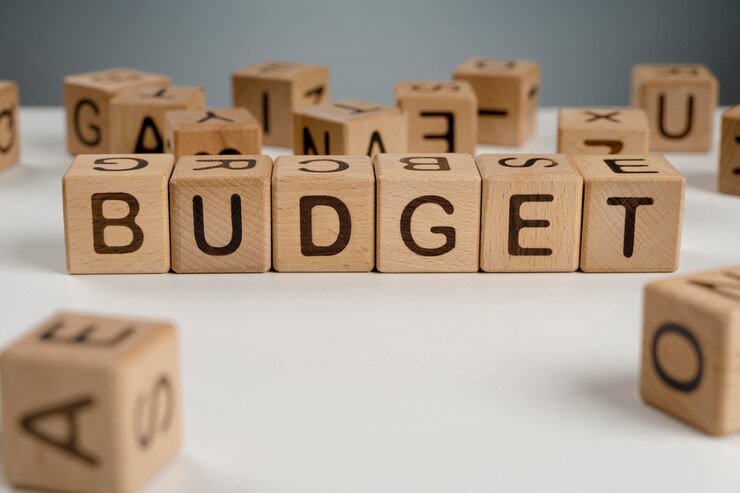Do you ever wonder where all your income goes and why you sometimes run out of money at the end of the month? Well, you may want to consider making a personal budget. This strategy guarantees you more control over your finances and makes it easier to save money and pay off debt.
Let’s face it, budgets can feel like training wheels for grown-ups. They sound restrictive and boring. But hear me out: budgeting isn’t about saying “no” to everything. It’s about saying “YES!” to the things that truly matter. Think of it like this – knowing where your money goes lets you control it, instead of the other way around.
So, how do we unlock these budgeting prowess in 2024? In this blog, you will learn Budgeting 101: the basics of how to budget more in 2024.
What is a Budget?
Some people say it is a financial plan that outlines an individual’s income and expenses over a specific period, typically on a daily, weekly, monthly, or yearly basis. It serves as a tool for managing and controlling finances by providing a clear picture of income sources, anticipated expenses, and potential savings.
Why Is Budgeting Important?
Maintaining a budget makes it easier to keep track of monthly expenses and keep up with your financial goals. Not only can this strategy give you better insight into your financial situation, but it also can help you stay disciplined by showing you how to prioritize your spending.
Budgeting helps you achieve your financial goals and also gives you less financial stress. Properly allocating your money can help you save, pay off a debt or dedicate to a retirement fund.
Tips on How To Budget More in 2024
Budgeting can be very tricky when you begin, but creating an effective budget requires thoughtful planning, discipline, and commitment. Below are some important steps/tips to follow to maintain a good budgeting plan.
1. Calculate All Your Income
To start budgeting your money, you’ll need to first figure out your total monthly income. Some potential income sources include regular salaried earnings, self-employment income (side gig), or business income.
2. Categorize Your Monthly Expenses
The next step is to determine your expenses so you can categorize them. These include both fixed and variable expenses that occur monthly or Yearly. Once you’ve identified your expenses, you’ll want to categorize them. Some common categories are:
- Housing: Rents
- Health: Doctor and dental visits, health insurance premiums, medications and supplies
- Food: Groceries, restaurant meals and delivery services
- Transportation: Public transportation fees, parking, car payment, insurance, gas, and maintenance
- Utility bills – statement of amount owed for essential services like electricity, TV, internet, phone, and streaming services. With Vasrefil, you can make all these payments with ease and on one platform. Read also Make Bill Payments on Vasrefil: Pay DSTV, GoTV & Electricity Bills in Nigeria
3. Set Clear Financial Goals
One of the key things to budgeting is to identify your financial goals. These are short, medium, and long-term goals. Whether it’s going back to school, saving for a dream vacation, or even planning for your friend’s wedding, having clear and specific objectives will guide your budgeting decisions. Allocate the appropriate portion of your monthly income toward these goals to ensure steady progress
4. Follow the 50/30/20 Rule
As often talked about, Enter the 50/30/20 rule. With this method, you allocate 50% of your income to needs, 30% to wants, and 20% to savings and debt repayment. It’s a flexible framework, not a strict rulebook. You can also adjust the percentages based on your goals, like that dream vacation or school, or your friend’s wedding. Read also: 8 Ways to Prioritize Your Bills
5. Adjust Your Spending Habits
With your budget set, you will have to change and track your spending habits so that you don’t exceed the allocated amounts. Stick to the items you have on your budget and try to avoid unnecessary purchases. It also helps to identify issues that may lead to overspending, such as emotional shopping or overpaying for services due to convenience.
6. Have An Emergency Fund
Contrary to what some may believe, having an emergency fund will not ‘jinx’ you into having emergencies. An emergency fund will help you prepare for unexpected expenses, saving you from getting into avoidable debt. Aim to have a safety net that you can always fall on in case of unforeseen circumstances.
7. Review and Adjust Your Budget When The Need Arises
Your budget should grow as your financial goals, income, and expense amounts change, so you will have to review it occasionally. If you receive a raise, incur a new expense, or pay off debt, update your budget accordingly.
As you review your budget, take time to check for problem areas, too. Maybe you’ve consistently spent too much on a particular type of expense and need to decide whether to try to cut the cost moving forward.
Conclusion
In conclusion, as you set your budget this year, remember budgeting right is a journey that will help you take control of your financial future. By setting clear goals, tracking your finances, and making informed decisions, you can achieve financial stability and enjoy peace of mind.
Learning how to budget money better takes time and practice, gaining better financial control and achieving your financial goals make it worth it. By having a budget, you’ll better understand how much you earn and spend each month so you can work on changing detrimental spending habits.
Good budgeting habits can also help you eliminate high-interest debt, saving you money in the long term.


Leave a Reply